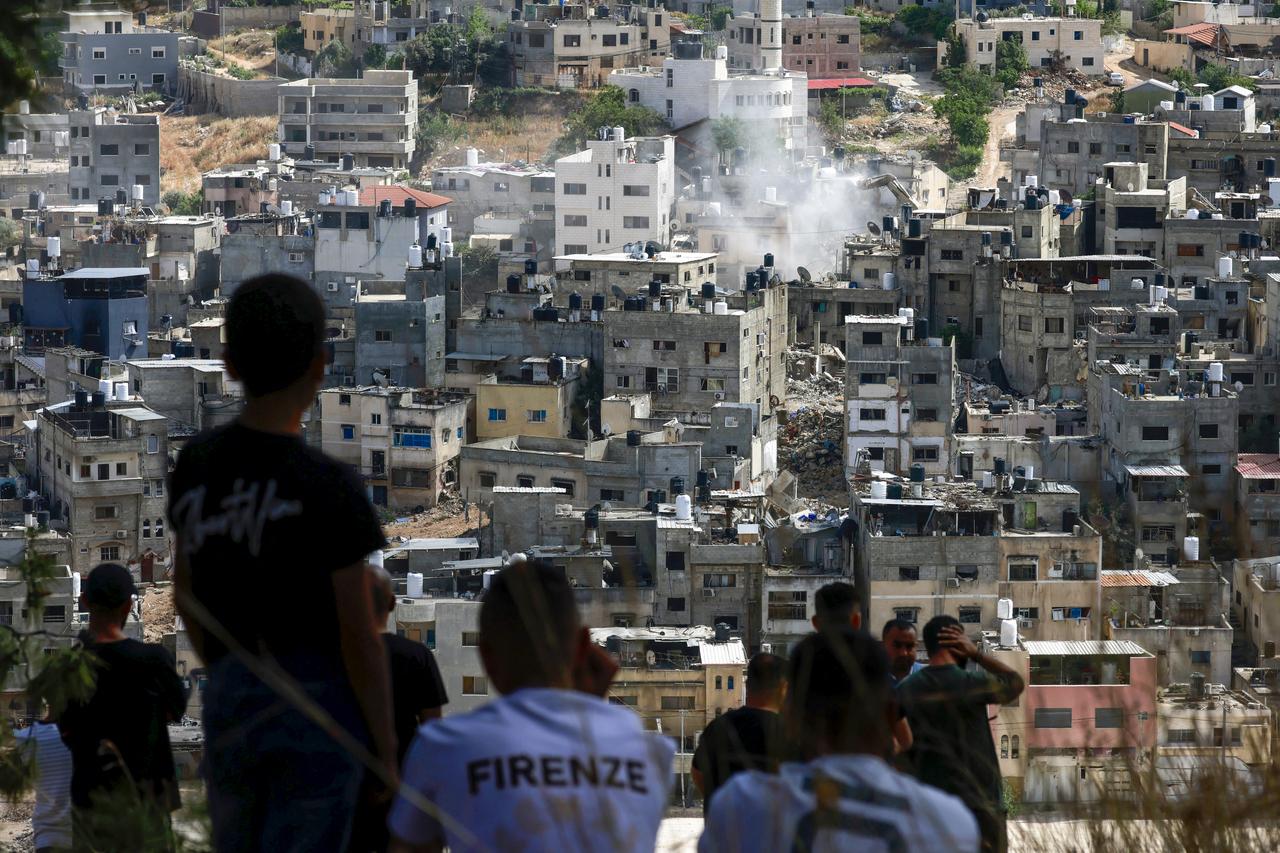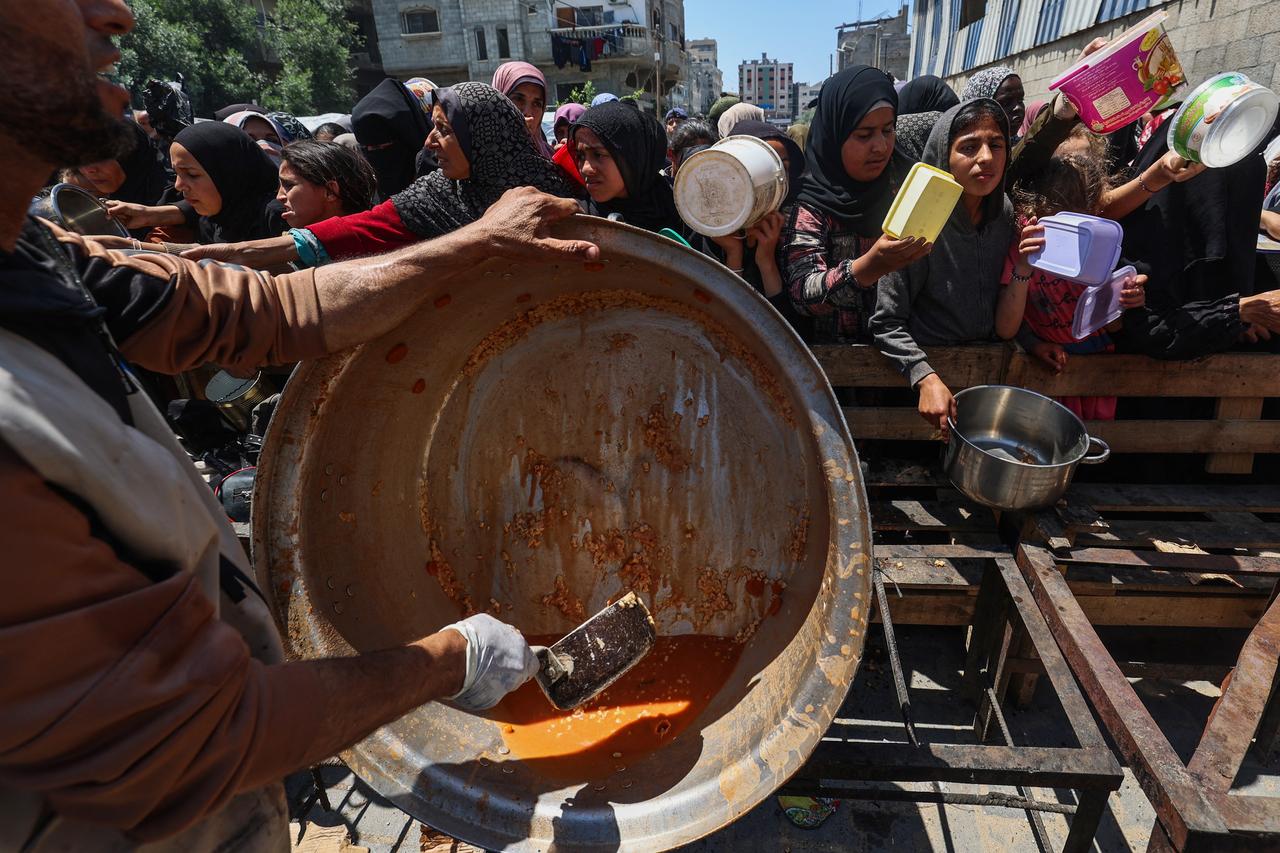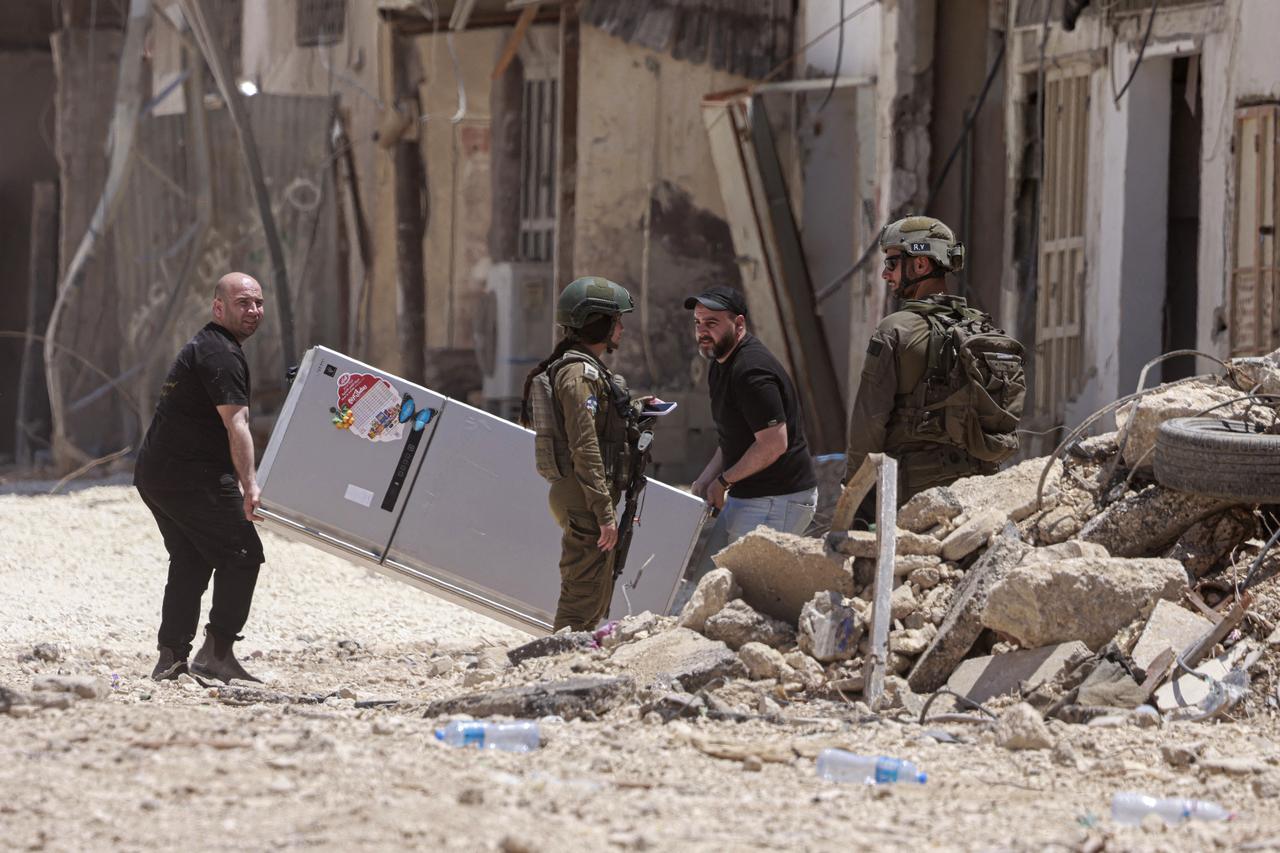
Hamas on Tuesday dismissed ceasefire talks with Israel, accusing it of waging a "hunger war" on Gaza as the region faces a worsening humanitarian crisis and Israel prepares for a broader military assault.
The comments from Hamas came after Israel's security cabinet approved an expanded military plan involving the "conquest" of Gaza, where nearly all of its 2.3 million residents have been displaced. A two-month Israeli blockade has further worsened the situation, with famine now looming.
"There is no sense in engaging in talks or considering new ceasefire proposals as long as the hunger war and extermination war continue in the Gaza Strip," said Basem Naim, a senior Hamas official and former health minister in Gaza.
"The world must pressure Israeli Prime Minister Benjamin Netanyahu's government to end the crimes of hunger, thirst, and killings," he added.
Naim’s remarks follow Israel’s announcement of a military plan that includes the displacement of most of Gaza’s population and the conquest of the territory. Israel's military resumed operations on March 18, 2025, after a two-month ceasefire, with intensified airstrikes targeting civilian infrastructure.

Qatar, a key mediator in the ongoing conflict, has stated that its efforts to secure a ceasefire in Gaza continue. However, Israel’s plans to escalate military operations, including moving the majority of Gaza’s residents to southern areas, signal a shift in the dynamics of the conflict.
On Monday, Israel’s security cabinet approved a military plan that one official said would involve the "conquest of the Gaza Strip and holding of the territories." This expanded military strategy is reportedly aligned with a potential hostage exchange coinciding with U.S. President Donald Trump’s upcoming visit to the Middle East.
Since Hamas’s October 7, 2023 attack on Israel, nearly all of Gaza’s inhabitants have been displaced multiple times.
The humanitarian situation has deteriorated further with food, water, and medical shortages exacerbated by the Israeli blockade. Gaza’s civil defense reported that six Palestinians, including a young girl, were killed in Israeli airstrikes early on Tuesday.
Moaz Hamdan, a Gaza resident who lost family members in an Israeli strike, described the scene: "We saw the whole place covered in dust and destruction, and there was no vision. We were unable to rescue the wounded," he said.

International condemnation of Israel’s actions continues to grow. France’s Foreign Minister Jean-Noel Barrot called Israel’s planned offensive "unacceptable," stating that it violates international humanitarian law. China also expressed concerns, urging all parties to implement ceasefire agreements effectively.
The United Nations has repeatedly warned of an impending humanitarian disaster, with famine threatening to worsen the crisis. Jens Laerke, spokesperson for the UN’s humanitarian agency OCHA, said, "The bottom line is that there's no aid to distribute anymore because the aid operation has been strangled."
Despite the dire situation, Israel's military spokesperson Effie Defrin insisted that their operations in Gaza are designed to protect civilians by displacing them from the fighting zones. However, many international observers, including humanitarian organizations, argue that forced displacement will exacerbate the suffering of Gaza’s civilian population.
The UN and aid organizations have called on Israel to allow unrestricted access for humanitarian aid to alleviate the suffering of those caught in the crossfire.
TWEET: Hamas dismisses Gaza ceasefire talks, accusing Israel of waging a "hunger war" as humanitarian crisis deepens